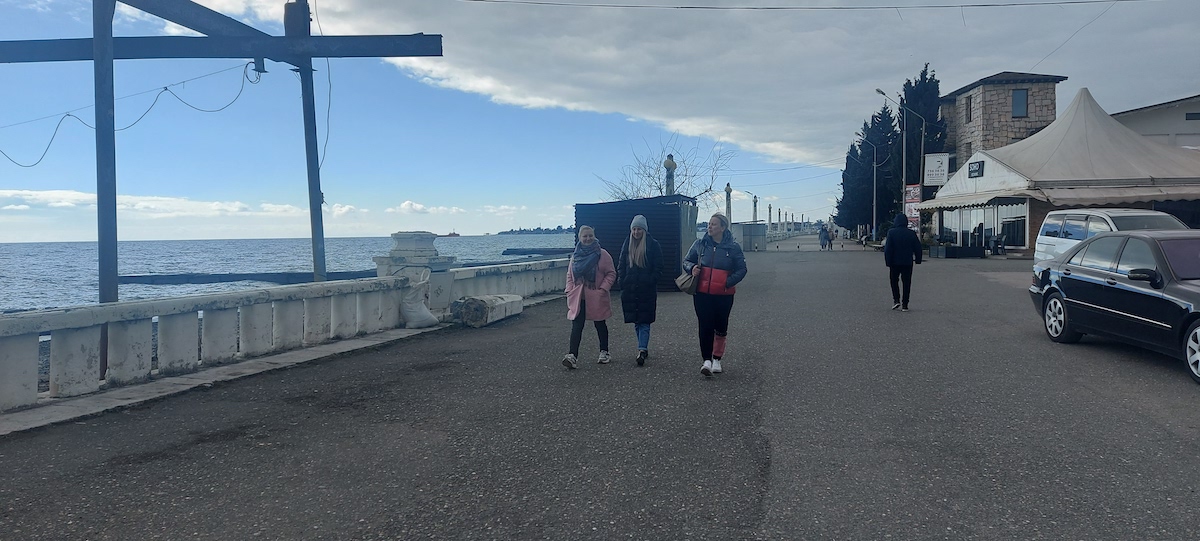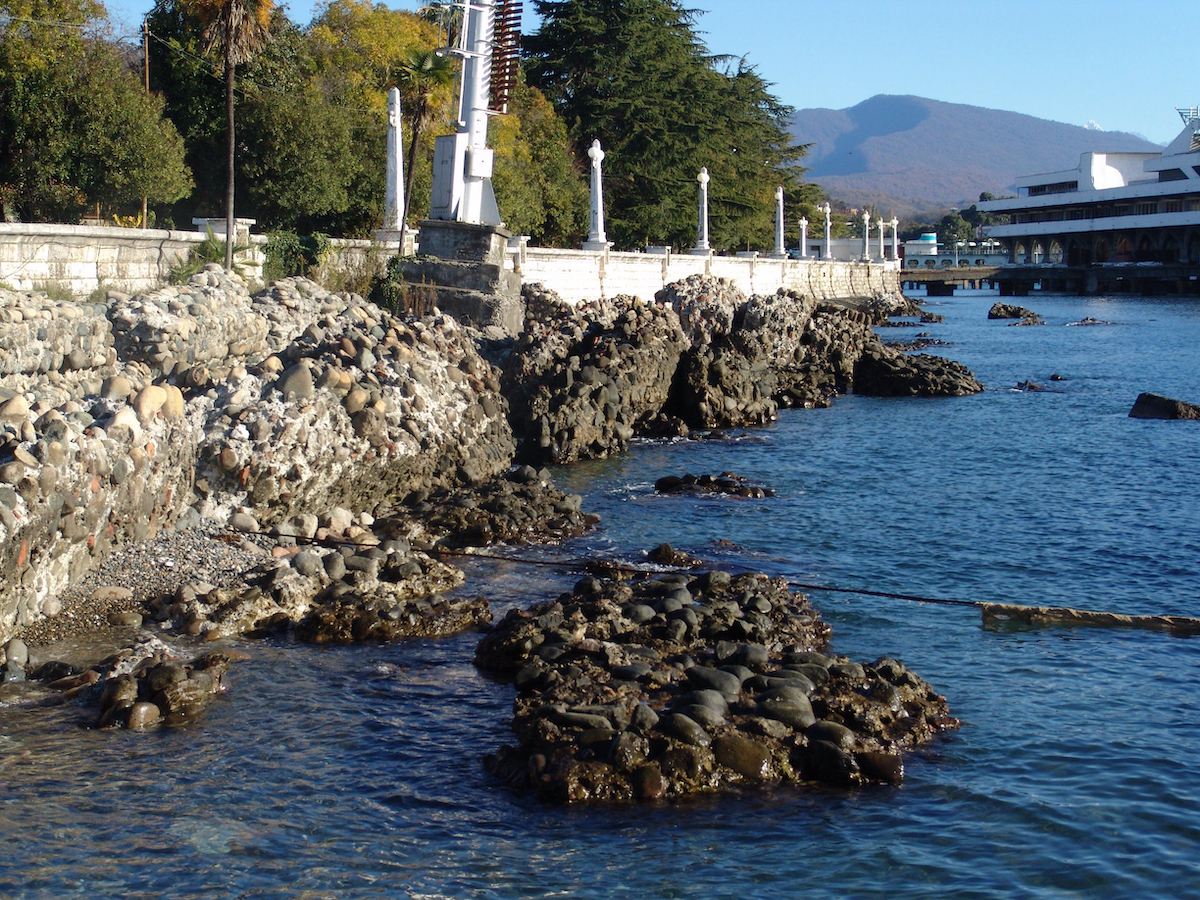Private companies in Abkhazia will be allowed in energy sector; sale of land still verboten
Bzhania on energy and land in Abkhazia
The transfer or sale of land and facilities in the energy sector are among the most sensitive in Abkhazia, and so they were singled out in President Aslan Bzhaniya’s report on his work over two and a half years in office.
The President said that for the first time Russian private business would be allowed to invest in the energy sector, reviving long-standing disputes and fears in society on the matter.
- Op-ed: Private sector is the only solution to Abkhazia’s energy crisis
- Opinion: will electricity price increase end Abkhazia’s energy crisis?
- Op-Ed: Abkhazia without electricity and business above all
But Bzhaniya dispelled fears on another important issue — the sale of land to foreigners, saying that this would continue to be prohibited.
The main part of the President’s hour-long speech was a list of state-funded infrastructure projects: the construction and repair of roads, water supply, sewers, power lines, schools, hospitals, cultural centers and museums.
What Bzhaniya did not say, however, is that the vast majority of these facilities are already financed by Russian aid. On social media, therefore, the consensus is that the President should not have presented this “construction boom” as his own achievement.
Since the moment of Abkhazia’s recognition by Russia in 2008, Russian aid to Abkhazia has been going on under each president — Sergei Bagapsh, Alexander Ankvab, Raul Khadzhimba, now Aslan Bzhaniya, and will likely continue under the next president.
- Abkhazian president gets full control of parliament as ‘pro-president’ MPs take majority of seats
- What has changed in Abkhazia during the first year of Aslan Bzhania’s presidency?
- Challenges faced by the new president of Abkhazia
Let the Russians into the energy sector
Perhaps the most important part of the President’s speech was on his intention to allow private business into the energy industry, which, according to existing legislation, is under the jurisdiction of the state.
Bzhaniya bluntly said that Abkhazia is not able to cope on its own with the consequences of the depreciation of the electric industry, regular emergency power outages and a lack of generation.
“To bring the energy system out of the crisis, according to the calculations of specialists carried out in 2017, at least 20 billion rubles [about $326 million] are required. And the share of all our own funds in the state budget of the Republic of Abkhazia is only 6.5 billion rubles [about $1.5 million],” the President stated.
Bzhaniya sees a way out of the current energy crisis in reforming the industry and attracting private investment. In his report, the President did not directly say that foreign, or more precisely Russian, business would be allowed to denationalize the Abkhaz energy sector. But the amount of the investment proposal is clearly not within the means of a hypothetical Abkhaz investor, so signs point to Russia.
Bzhaniya does however believe that a condition of such reforms should be the state retaining management in the sector. Of course, there is no certainty that the process will follow this scenario.
Bzhania on energy and land in Abkhazia
Bzhaniya as a reformer – are there any successes?
The word “reform” in the President’s report was mentioned only in the context of energy.
On the way to the presidency, Aslan Bzhania had positioned himself as a systemic reformer. He talked about the need for constitutional reform, about reforms in the law enforcement, about reducing the bureaucratic apparatus, and about many other things.
But now, even where they have been developments, the President doesn’t mention such things. For example, a year ago, the commission on reforming the constitution, created by Bzhaniya, made its recommendations for amendments. And there it stopped.
Airport and gasification
Experts say that instead of reforming, Bzhaniya switched to mega-projects. He hopes to revive the Sukhumi airport, which has been inactive since the end of the Georgian-Abkhazian war in 1993.
He stated that by the end of his presidential term in 2025, air communication between Abkhazia and the Russian Federation will be established. Currently, indeed, design and survey work is underway and planned to be completed in 2023, after which the construction of the airport is expected to begin.
Another infrastructure project announced by Aslan Bzhaniya with Russian money is gasification.
This, he said, will make it possible to reduce the load on the electric power system and increase its stability. At the moment, a general scheme for the gasification of Abkhazia is in development.
Despite such plans to attract Russian capital to Abkhazia, Aslan Bzhaniya stated that “this does not mean the sale of land or the inalienable property of the people of the Republic of Abkhazia. There can be no talk of selling the land.”
“Our way is to get out of stagnation toward development,” Bzhaniya declared. “We must be open to those who are open to us and recognize us, who want to cooperate with us and build long-term, reliable and honest relations with our country.”
Terms, place names, opinions and ideas suggested by the author of the publication are her / his own and do not necessarily coincide with the opinions and ideas of JAMnews or its individual employees. JAMnews reserves the right to remove comments on posts that are deemed offensive, threatening, violent or otherwise ethically unacceptable.
Bzhania on energy and land in Abkhazia






















